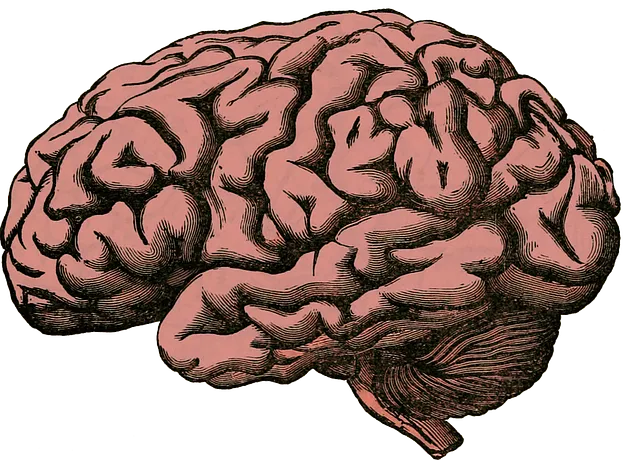The Kaiser Permanente Mental Health Access Center in Denver is revolutionizing mental wellness assessment for healthcare professionals at risk of burnout, implementing innovative tools and workshops. They offer comprehensive, confidential self-assessment tools incorporating quantitative and qualitative data, stress management techniques, and crisis intervention resources. Through a rigorous process combining research, evidence-based practices, and community feedback, the center develops reliable assessments tailored to diverse populations while minimizing practitioner burnout. Their strategy integrates mental health into routine practice, improving patient care and fostering empowerment in both healthcare providers and seekers.
“Mental wellness self-assessment tools play a pivotal role in empowering individuals to take charge of their mental health. Drawing insights from the innovative practices at the Kaiser Permanente Mental Health Access Center in Denver, this article explores the development and impact of these tools. We’ll delve into the necessity of self-assessments, uncover key components for effective assessments, and trace the creation process focusing on reliability and validity. Additionally, we’ll examine how user feedback drives impactful improvements in mental health support.”
- Understanding the Need for Self-Assessment Tools: A Look at Kaiser Permanente Mental Health Access Center in Denver
- Key Components of Effective Mental Wellness Self-Assessment Tools
- Development Process: Creating Reliable and Valid Assessment Resources
- Implementation and Impact: Enhancing Mental Health Support through User Feedback
Understanding the Need for Self-Assessment Tools: A Look at Kaiser Permanente Mental Health Access Center in Denver

The Kaiser Permanente Mental Health Access Center in Denver has brought significant attention to the growing need for effective mental wellness self-assessment tools within the healthcare industry. With a focus on early intervention and prevention, this center recognizes that traditional methods often fall short in identifying mental health issues among healthcare providers, who are at high risk of experiencing burnout and stress due to demanding work environments. Thus, they have taken a leading role in developing innovative solutions to address these concerns.
By implementing various self-assessment tools, the center aims to empower healthcare professionals with an understanding of their mental wellness status. These tools offer a confidential and accessible way for providers to evaluate their stress levels, burnout risk, and overall psychological well-being. With a goal to integrate mental health into routine practice, Kaiser Permanente’s initiative promotes the adoption of Burnout Prevention Strategies for Healthcare Providers and encourages organizations to facilitate Stress Management Workshops. This proactive approach ensures that healthcare providers have the necessary resources to adopt effective Stress Reduction Methods, ultimately improving patient care and creating a more sustainable work environment.
Key Components of Effective Mental Wellness Self-Assessment Tools

Effective mental wellness self-assessment tools are multifaceted, aiming to comprehensively evaluate an individual’s psychological state and provide actionable insights. Key components include validated assessment questionnaires designed to gauge symptoms of common mental health conditions, such as anxiety and depression. These tools should also incorporate qualitative questions to capture personal experiences, coping mechanisms, and areas of concern that quantitative measures might overlook.
Incorporating features like stress management techniques, crisis intervention guidance, and self-esteem improvement resources within the assessment is beneficial. The Kaiser Permanente Mental Health Access Center in Denver emphasizes the importance of early detection and access to care, making these tools valuable for both personal self-reflection and professional clinical settings. By combining scientific validity with practical support, mental wellness self-assessment tools can empower individuals to take charge of their psychological well-being.
Development Process: Creating Reliable and Valid Assessment Resources

The development process of reliable and valid mental wellness self-assessment tools involves a systematic approach to ensure their effectiveness. At the Kaiser Permanente Mental Health Access Center in Denver, experts collaborate to create assessments that accurately gauge an individual’s mental health status. This includes extensive research on existing validated scales and instruments, tailored to meet specific needs or gaps identified within the community. By drawing from evidence-based practices, such as Empathy Building Strategies and Mental Health Education Programs Design, the center ensures that its resources are both clinically sound and culturally sensitive.
The team employs rigorous standards throughout the development phase, incorporating feedback from healthcare professionals and individuals with lived experiences to refine the tools. This iterative process aims to enhance validity by ensuring the assessments accurately reflect mental health dimensions across diverse populations. Additionally, burnout prevention strategies for healthcare providers are considered to create user-friendly resources that minimize strain on practitioners while maximizing their ability to contribute to accurate self-assessments.
Implementation and Impact: Enhancing Mental Health Support through User Feedback

The development of self-assessment tools for mental wellness is a powerful strategy, especially when coupled with user feedback mechanisms. Organizations like the Kaiser Permanente Mental Health Access Center in Denver have recognized this potential and implemented innovative approaches to support mental health within their community. By integrating user feedback into the design process, these centers can create tailored interventions that resonate with individuals’ unique needs.
This approach is evident in the Community Outreach Program Implementation, where stress reduction methods and Stress Management Workshops Organization play a pivotal role. Through gathering feedback from participants, the center gains insights into effective stress management techniques and adapts their programs accordingly. This continuous improvement cycle ensures that mental health support remains relevant and impactful, fostering a sense of empowerment among individuals seeking assistance.
The development of mental wellness self-assessment tools, as exemplified by Kaiser Permanente’s initiative in Denver, is a transformative step towards enhancing access to mental healthcare. By incorporating user feedback and adhering to rigorous development processes, these tools can accurately gauge mental health status, serving as valuable resources for individuals seeking support. Effective self-assessments empower folks to take charge of their mental well-being, while also guiding professionals in providing targeted interventions, ultimately fostering a healthier community.






